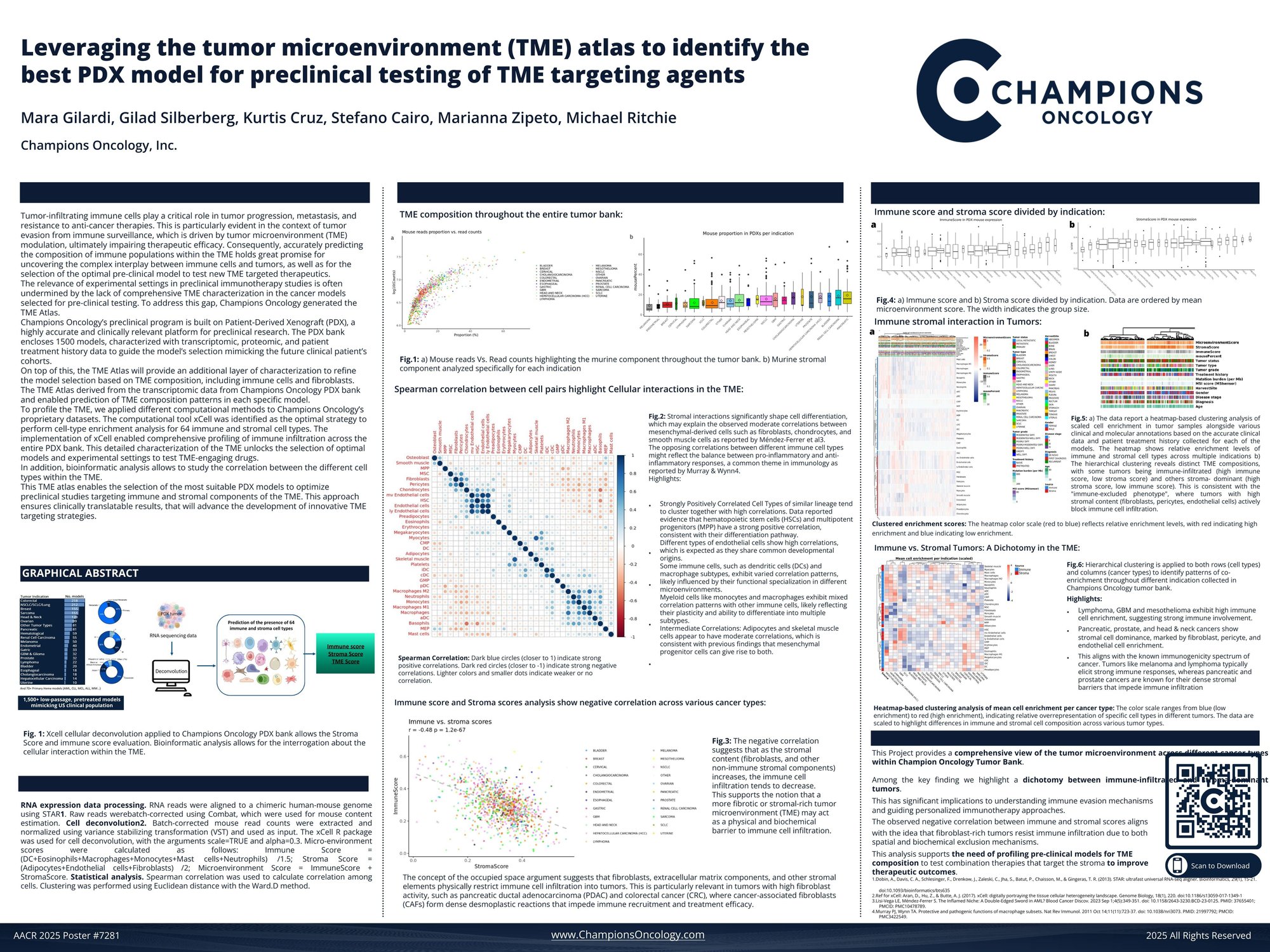Download Champions' latest AACR 2025 Poster
Leveraging the tumor microenvironment (TME) atlas to identify the best PDX model for pre-clinical testing of TME targeting agents

A critical limitation in the development of effective TME-targeted therapies is the inadequate representation of the tumor microenvironment (TME) in preclinical cancer models. The complexity and heterogeneity of immune and stromal cell interactions significantly influence tumor progression and treatment resistance, yet most preclinical studies fail to account for these dynamics. Understanding TME composition is essential to selecting the most predictive models for immunotherapy and stromal-targeted drug development.
Champions Oncology has developed a TME Atlas by applying cell deconvolution (xCell) to transcriptomic data from their extensive PDX tumor bank. This atlas profiles 64 immune and stromal cell types, enabling model selection based on TME characteristics.
-
A clear dichotomy was observed between immune-infiltrated and stroma-dominant tumors, with a negative correlation between immune and stromal scores across cancer types—highlighting the spatial and biochemical exclusion of immune cells by fibroblast-rich environments.
-
Cell-type correlation analysis revealed lineage-specific clustering and key interactions—e.g., strong correlations between hematopoietic stem cells and progenitors, and among stromal lineages—shedding light on the cellular architecture of the TME.
-
The TME Atlas supports the rational selection of PDX models for testing TME-targeted therapies, increasing clinical relevance and translatability of preclinical findings, and offering a powerful tool to inform patient stratification and combination therapy strategies.